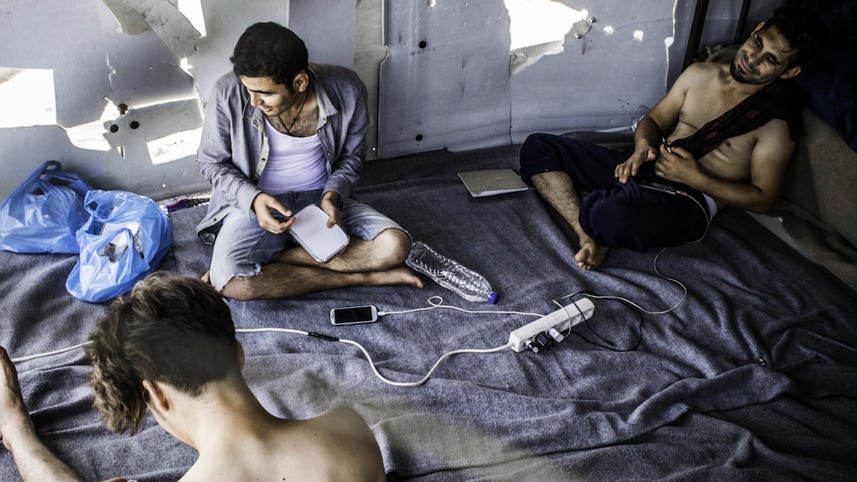
[MUSIC]
Technology was actually everywhere when we were in Greece.
So the three primary things that refugees used for their phones and they needed their phones for these things was staying in touch with their families.
Staying in touch with other networks of refugees and also keeping appraised of the news and whatever information was coming out.
Social media was used mostly through Facebook groups.
There were a lot of independent volunteer groups.
They used Facebook groups to organize themselves, and find refugees that needed help.
[MUSIC]
I think every single place that we went to, there were different, interesting, fascinating people.
Either folks that were helping refugees or refugees themselves.
These folks are living in pretty crummy conditions and yet They were very welcoming to me and very open, they offered me a juice box and like croissant all these different rations, different things like that just whatever they had which I was pretty surprised to experience.
[MUSIC]
Any time I
Spent some time around like a little kid.
It was very affecting for me because I have little kids.
There was this just a little girl I don't even know what her name was and she just came over and hugged each one of us.
Just wanted affection so at one point she kind of hid behind me by the wall and I like patted her head and it really made me think and wonder about.
What this girl must have been through just to get to where she was.
And the fact that she didn't know who we were, she didn't know what we were doing there, and all she really wanted was to kind of have some sort of human connection with us.
[MUSIC]
For me, as someone who writes about tech all the time
It really showed how that human one on one connection can't really be replaced by an app.
And it's so important for many of these who feel that they have been ignored or forgotten.
[MUSIC]
[BLANK AUDIO]